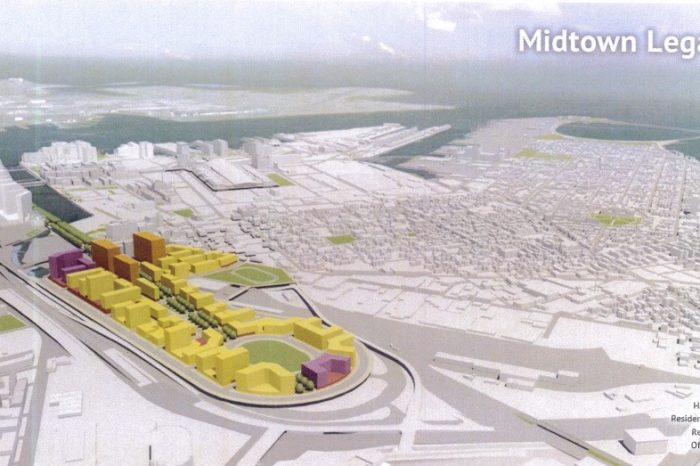Post-Olympic Real Estate Implications of the Boston 2024 Proposal
Two weeks ago, a series of documents published by a number of sources, including the Boston Business Journal, Boston Magazine and the New York Times, revealed development plans for the Boston Olympics that give the public greater information and raise new questions about the effort to bring Boston the 2024 Olympics. Of great interest to Pioneer, the “bid book” disclosed some of the post-Olympic real estate implications of bringing the games to Boston. What it made clear to us is that there is much more to the proposal than the Olympics—it’s also about post-Olympics real estate development rights.
The Boston 2024 Olympics plan includes an expansive post-Olympics private real estate development proposal for the Olympics site, facilitated by a combination of government authorizations, possible eminent domain land takings, infrastructure improvements, and some publicly-issued debt, based upon the documents recently released by Boston 2024. The Boston 2024 plan calls for hotel, office, retail, and residential development in and around Widett Circle that Pioneer estimates will be worth at least $3.6 billion in post-construction value, meaning that whoever winds up owning the development rights stands to make hundreds of millions in profits. The Boston 2024 plan calls for the following development on the Widett Circle site:
Hotels: 720,000 square feet
Residential: 3,975,000 SF
Retail: 870,000 SF
Office: 1,550,000 SF
The fact that a substantial post-Olympics real estate development project is included in the Boston 2024 proposal should not be a disqualifier, so long as the public isn’t footing the bill and bearing the risk associated with it. Developing an underutilized swath of the city is a desirable public outcome, but questions remain about what the public will contribute, including special government authorizations, tax breaks, and financial contributions, and what it will receive in return. If Boston 2024 intends to woo the citizens of the Commonwealth, it should answer the following questions:
- Who owns the proposed post-Olympic land development rights today and who will own them in the future?
- Who will control the disposition of post-Olympics land development rights and by what process will such decisions be made?
- If approval of the Boston 2024 proposal will result in substantial post-Olympic land development profits facilitated by public funding and special government authorizations, what financial disclosures will be made in advance to allow for informed deliberation about whether proposed tax-exemptions and public financing should be granted?
- Who has leasing rights of the land from the time the Olympic stadium development begins through the duration of the games? What is the lease arrangement?
- What public subsidies—if any—will go to the current private owners of the land at Widett Circle to relocate?
- What conflict-of-interest policy is in place now to insure that ownership interest and future development options and rights in the project held by trustees, officers, business associates, and family members associated with Boston 2024 are disclosed to the public?
If Boston 2024 can facilitate Boston’s hosting of the Olympics with little or no public funding, it will be a tremendous benefit to the city and the region. Likewise, if its proposal for post-Olympics urban development around Widett Circle can be facilitated, the public will benefit, so long as it does not end up footing the bill and bearing the risk associated with a private real estate development deal. Thus far, too little attention has been paid to the post-Olympic land development aspect of the Boston 2024 proposal. Given the scope of the post-Olympics real estate proposal and the potential profits involved, transparency and informed public process are essential to protect the public interest.



